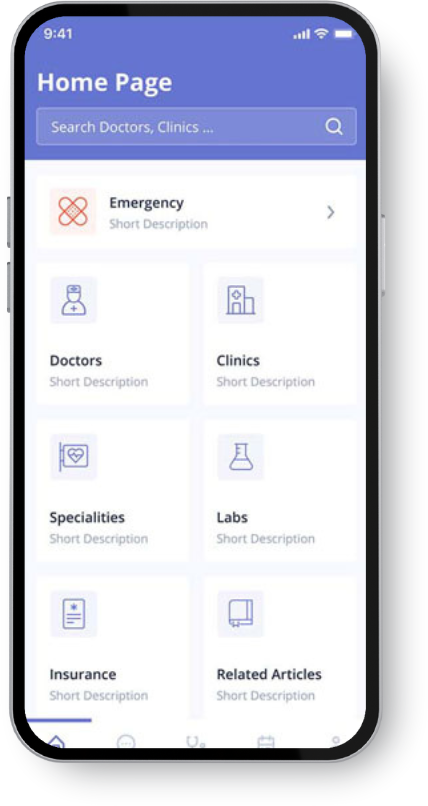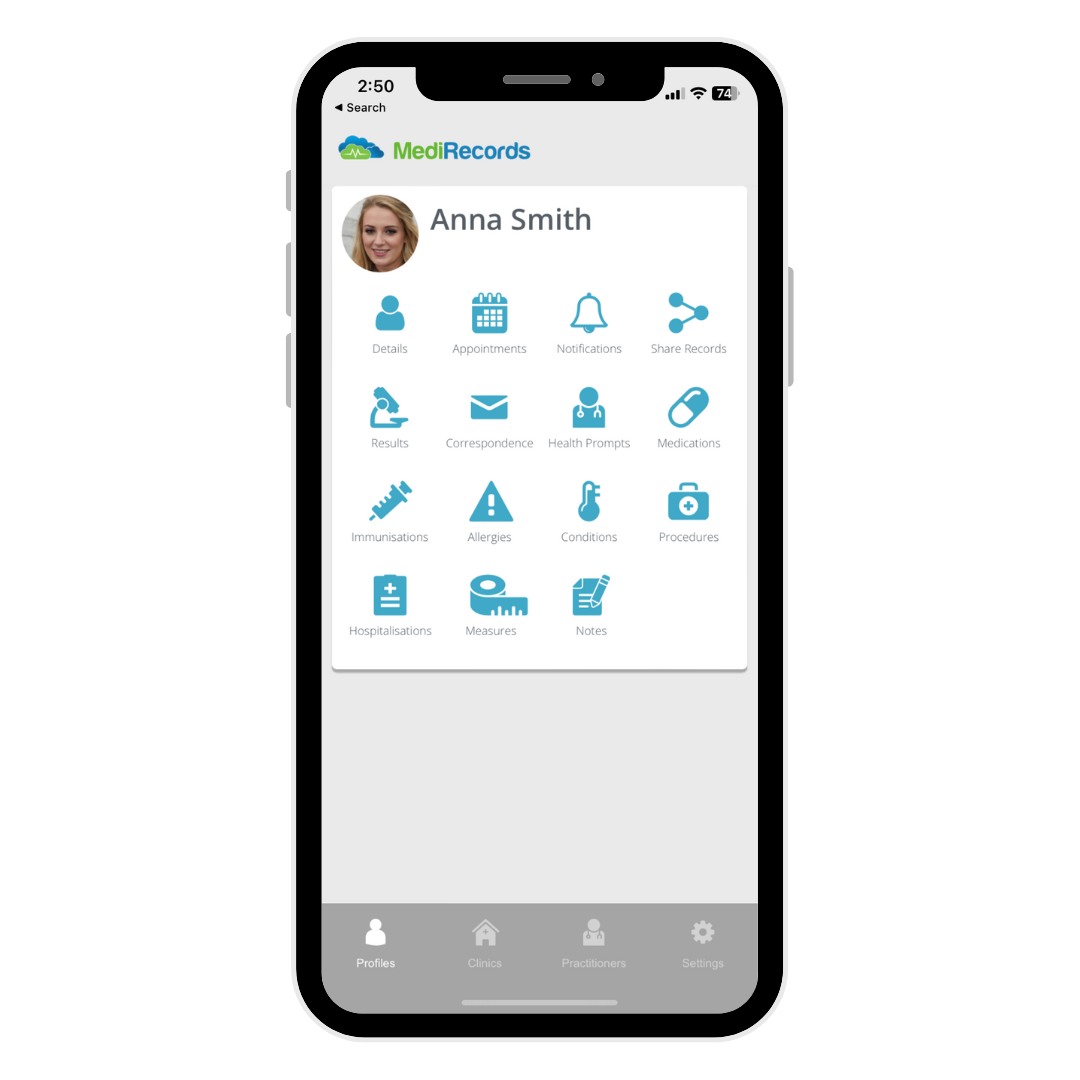Change Patient Care with a Mobile App for Clinics: Top Features to Take Into Consideration
Change Patient Care with a Mobile App for Clinics: Top Features to Take Into Consideration
Blog Article
The Future of Healthcare: Why Clinics Need a Mobile Application Today
As the healthcare landscape proceeds to progress, facilities face installing pressure to adjust to individual assumptions for higher convenience and access. The assimilation of mobile applications can serve as a crucial approach for enhancing individual engagement and improving operations.
Altering Individual Expectations
As the landscape of health care evolves, client assumptions are going through a considerable improvement. Today's individuals are progressively seeking ease, accessibility, and individualized care.
Moreover, clients are coming to be much more informed and encouraged, typically investigating treatments and conditions online prior to consultations. This enhanced recognition is paired with a demand for transparency in medical care processes, consisting of expense price quotes and treatment choices. Consequently, service providers are compelled to adapt by embracing digital tools that improve the patient experience.
The assumption for effective and prompt interaction has actually never ever been higher, with many people taking into consideration responsiveness an important element of high quality treatment. mobile app for clinics. In this progressing landscape, healthcare organizations should acknowledge these altering expectations and leverage mobile applications to foster a much more patient-centric technique, making sure that they not just satisfy however exceed the standards set by today's informed customers
Enhancing Individual Involvement

Mobile applications assist in interaction in between patients and health care service providers, enabling real-time appointment organizing, pointers for medicine adherence, and direct messaging attributes. These functionalities not only boost ease yet additionally develop a sense of accountability amongst individuals. Furthermore, mobile applications can provide academic content customized to specific requirements, assisting clients better comprehend their problems and therapy alternatives.
The integration of gamification elements within medical care applications can additionally motivate patients to involve in healthy and balanced habits, reinforcing favorable way of life adjustments. Ultimately, boosting person engagement via mobile applications leads to enhanced wellness outcomes, higher patient fulfillment, and a much more joint medical care experience.
Streamlining Clinic Operations
Streamlining facility procedures is essential for enhancing operations effectiveness and enhancing patient treatment. The execution of mobile applications can significantly reduce management problems, permitting doctor to concentrate extra on client interactions. By automating visit scheduling, person check-ins, and invoicing processes, centers can minimize wait times and improve general functional efficiency.
Mobile applications likewise facilitate real-time access to client records, allowing health care experts to make informed decisions quickly. This immediacy not just boosts the quality of treatment but additionally decreases the check these guys out likelihood of errors linked with lost or obsoleted info. Leveraging mobile technology supports an extra organized technique to managing person follow-ups and treatment plans, guaranteeing that no crucial actions are ignored.
This enables for timely replenishment and helps avoid disruptions in patient treatment due to stock shortages. By incorporating these functionalities into their daily operations, facilities can develop a more effective and natural environment, ultimately leading to boosted client results and complete satisfaction.
Improving Communication Networks
Reliable communication is frequently mentioned as a keystone of top quality healthcare shipment. In today's busy clinical atmosphere, mobile applications can dramatically improve interaction channels in between clinics, patients, and healthcare suppliers. By integrating mobile apps into their operations, facilities can facilitate real-time communications, making sure that individuals obtain timely details regarding their consultations, test results, and treatment strategies.
Mobile applications also empower clients to interact straight with their health care teams via safe messaging attributes. This straight line of communication promotes a sense of recommended you read interaction and permits prompt clarification of worries, which can cause better adherence to therapy protocols. Moreover, press alerts can advise patients of upcoming appointments or medication routines, minimizing no-show rates and boosting general health and wellness results.

Remaining Competitive in Medical Care
In a rapidly progressing health care landscape, organizations should prioritize advancement and flexibility to keep a competitive side. The combination of mobile applications into medical care solutions is no more optional; it is essential for clinics intending to improve person engagement, improve procedures, and boost total service delivery.
As individuals increasingly rely upon electronic systems for wellness monitoring, centers that stop working to take on mobile modern technology risk falling back. A properly designed mobile app can supply features such as appointment scheduling, telemedicine examinations, and access to medical documents, offering individuals with benefit and cultivating commitment.

Rivals are additionally buying mobile options, so remaining ahead calls for continual enhancement and staying informed concerning technological improvements. Centers should not just carry out mobile applications however likewise take part in regular updates and refinements. Ultimately, the go to my site effective integration of mobile innovation will certainly identify forward-thinking health care companies and established the criteria for patient-centric treatment in an electronic world.
Final Thought
In final thought, the assimilation of mobile applications in facilities is crucial to deal with the evolving landscape of individual expectations. Inevitably, the calculated implementation of mobile applications stands for an important action toward providing obtainable and personalized medical care, therefore satisfying the needs of today's equipped individuals.
Inevitably, enhancing person engagement via mobile applications leads to boosted wellness end results, better individual contentment, and a much more collaborative healthcare experience.Mobile applications likewise facilitate real-time accessibility to client records, allowing health care specialists to make informed decisions promptly. In today's hectic medical environment, mobile applications can considerably boost interaction networks in between facilities, people, and medical care carriers.Mobile applications also empower individuals to communicate directly with their healthcare teams via safe messaging functions. Inevitably, the critical implementation of mobile apps stands for a crucial step towards providing individualized and easily accessible health care, consequently meeting the needs of today's equipped patients.
Report this page